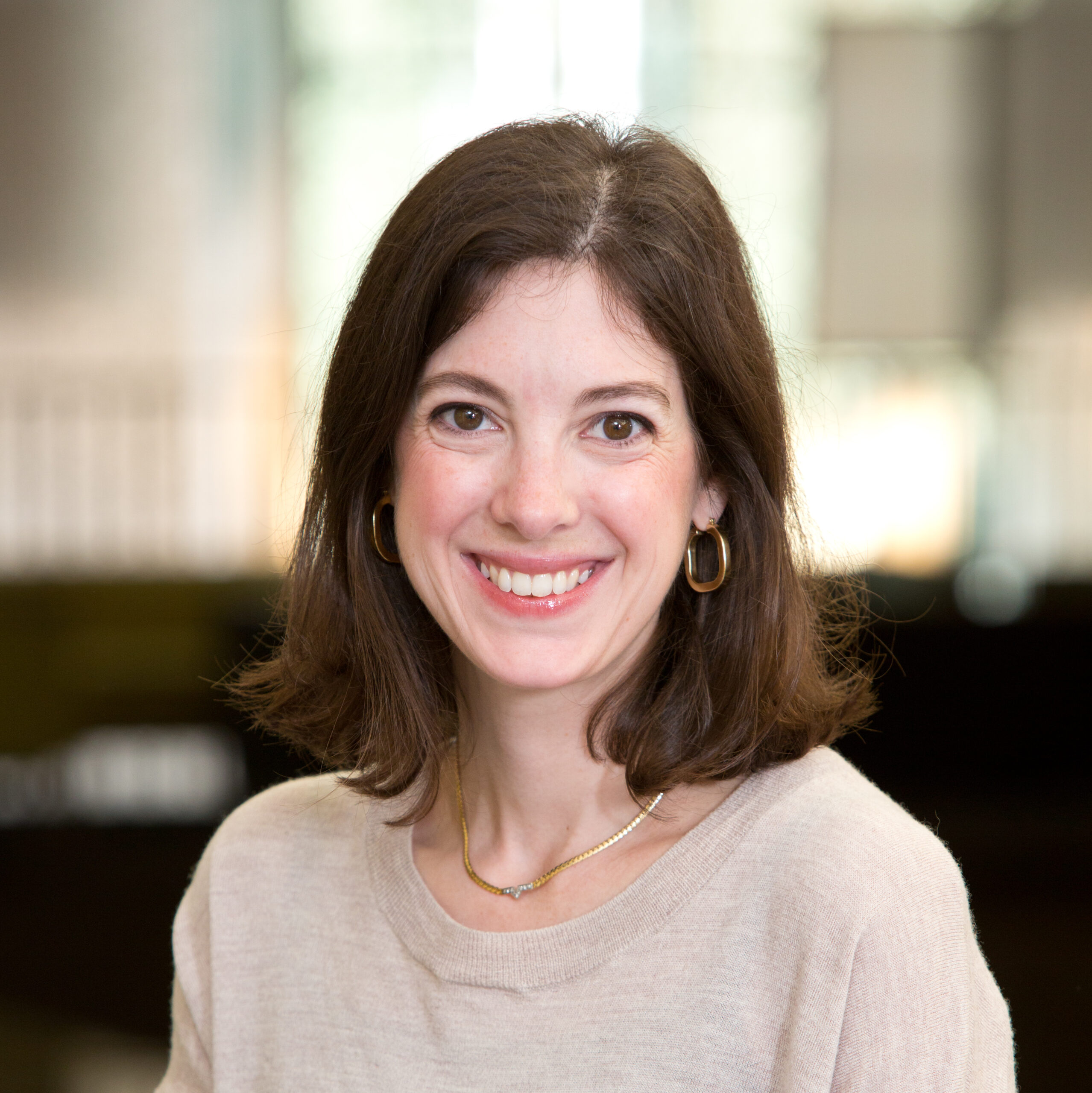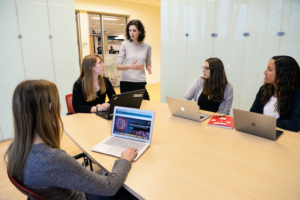Fighting the Spread: Misinformation and
COVID-19
By Katie Small

Newcomb Alumna Sofia Curdumi Pendley (NC ’05, PHTM *09, PHTM *18)
In the early pandemonium of the pandemic, one thing seemed to spread even faster than the virus itself: misinformation. Newcomb alumna Dr. Sofia Curdumi Pendley (NC ’05, PHTM *09, PHTM *18) found herself uniquely positioned to provide clarity amidst the fear and confusion.
In late-February, Pendley spoke with the Director of Homeland Security and Emergency Management in Bridgeport, Connecticut about the slew of contradictory and unreliable information regarding coronaviruses. The conversation inspired Pendley to take action: “I immediately said — ‘We can help fix that,’” she recalled.
Pendley recognized the potential learning opportunity for students enrolled in her Community Health in Times of Crisis course at Sacred Heart University, where she has been instrumental in creating a new Masters in Community Public Health program. She assigned her students the task of compiling weekly newsletters and slide decks relaying the most up-to-date information on COVID-19.
“We created weekly updates to send out to different health and emergency management departments in the [Fairfield, CT] area,” Pendley said. The updates quickly took off and were particularly useful to local and state politicians and community leaders in the Northeast. “Our scope widened to inform emergency protocol in those areas that saw a huge spike in cases in early April,” Pendley said. “My students were shocked that they were playing such an important role in real time.”
While creating the COVID-19 communication updates, Pendley connected with her professional network to recruit faculty and students at Tulane and Yale University to join the effort. The weekly updates became a collaborative endeavor housed in an online dashboard. “As time went on, we started compiling lists of all of the different clinical trials for vaccines, where they’re being conducted, what stage they’re at — so that people could understand that everybody in the world is working on COVID right now,” she said. “That’s so much information, and it’s spread out over so many disciplines.
As she continued to oversee the communications campaign, Pendley fielded media inquiries — including an interview with Business Insider — and began training students to conduct contact tracing, all while teaching full-time and caring for her five-year old daughter and one-year old son.
The daughter of Cuban immigrants, Pendley graduated from Newcomb in 2005 with a Bachelor’s Degree in Political Science. After a brief stint teaching English in Shanghai, she returned to Tulane to pursue a Master’s in Public Health followed by a Doctorate in Global Community Health and Behavioral Sciences. Her public health research focused on monitoring and evaluating disaster humanitarian response.

As a recent MPH graduate, Pendley worked to develop a framework for the Louisiana Disaster Case Management Pilot Program in the aftermath of Katrina. In 2012, when she was a Program Manager at Tulane’s Disaster Resilience Leadership Academy, the team was awarded a Gates Foundation grant to evaluate humanitarian assistance after the 2010 Haiti earthquake. Other projects involved analyzing the effects of drought on farmers in the Sahel, conducting an impact assessment after the 2010 Deepwater Horizon Oil Spill in the Gulf of Mexico, and working with the World Food Program to analyze food insecurity during the Ebola outbreak.
Pendley says misinformation is a typical symptom of public health crises, but it has been unusually widespread during the COVID-19 pandemic: “Misinformation has really become another disaster in and of itself,” she said. “It emphasizes the importance of public health communications.”
Looking to the future, Pendley predicts major structural changes in the conception and implementation of emergency management programs post-pandemic: “I think there’s going to be a huge change in the way we view emergency management in this country,” she said. The practice of localities declaring a state of emergency to qualify for federal resources will need to be adjusted. “From now on, we will have to account for situations that affect the entire nation — and even the entire globe — at the same exact time.”
While the nature of her work means she must constantly contend with crisis, Pendley says working with young people keeps her motivated. She draws inspiration from her students at Sacred Heart, as well as the Tulane students she mentors through her participation in the NAA. “Young women need to know that they belong in STEM,” she said. “Know that not only are you worthy of being here, you are needed — Don’t let anybody tell you otherwise.”
